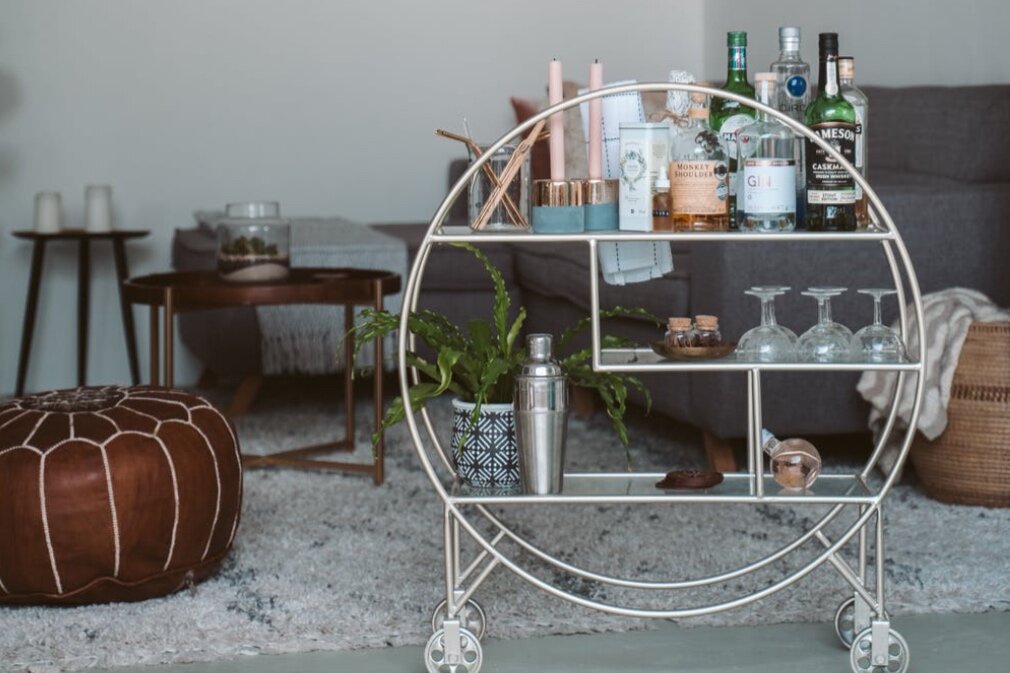
BLOG: NEWS, RECIPES AND ARTICLES
How about a “Quarantini?”
Daily life in the times of COVID-19 requires extra attention to our coping skills. Unwinding with a glass of wine or a "quarantini" has become a new norm for many people.
I recently came across two news reports that put in perspective the significance of this new coping habit. One article detailed the increased sales and consumption of alcohol this spring during the COVID-19 lockdown, while the other discussed the upcoming revised (and lowered) guidelines for safe alcohol consumption. Just as Americans are drinking more, research suggests we should be drinking less.
Daily life in the times of COVID-19 requires extra attention to our coping skills. Unwinding with a glass of wine or a "quarantini" has become a new norm for many people.
I recently came across two news reports that put in perspective the significance of this new coping habit. One article detailed the increased sales and consumption of alcohol this spring during the COVID-19 lockdown, while the other discussed the upcoming revised (and lowered) guidelines for safe alcohol consumption. Just as Americans are drinking more, research suggests we should be drinking less.
How much is too much?
For many years, the US Dietary guidelines implied there was evidence that moderate drinking could lower the risk of heart disease and reduce mortality. With that in mind, the US Dietary Guidelines 2015-2020 states that if alcohol is consumed, it should be in moderation—up to one drink per day for women and up to two drinks per day for men. High risk drinking is the consumption of 4 or more drinks on any day or 8 or more drinks per week for women and 5 or more drinks on any day or 15 or more drinks per week for men. With these guidelines, a daily “quarantini” may be classified as high-risk drinking.
Presently, a committee of scientists updating the latest edition of the Dietary Guidelines for Americans is changing the current stance on alcohol. After careful evaluation of the research, they report that studies showing alcohol can protect health are deeply flawed, and that any potential cardiovascular benefits would be outweighed by the fact that alcohol is a leading preventable cause of cancer. The committee plans to recommend that men and women who drink limit themselves to a single serving of wine, beer or liquor per day. They do not recommend drinking for health and suggest drinking less is generally better.
What are the risks of drinking?
While our nerves may be soothed in the short term, regular alcohol consumption may be counterproductive to our overall health and wellbeing. Many people are aware that excessive drinking can increase the risk for liver disease and obesity, but may not realize that even moderate alcohol consumption (one drink a day) can increase the risk of breast cancer, depression and a wide range of cardiovascular problems, including high blood pressure. Alcohol compromises our sleep quality which can translate into irritability, brain fog and a weakened immune systems. The more you drink, the higher your risk.
Finding alternatives to the “quarintini”
An occasional alcoholic beverage can be part of a healthy lifestyle, but now is a good time to evaluate your current drinking pattern. When do you typically drink and how often? Do you drink to unwind? Could you go a month without a drink? These questions may give insight into your relationship with alcohol.
If you find you are reaching for alcohol to help you unwinding in the evening, consider some of these alcohol-free strategies for coping with pandemic stress.
Practice regular self-care. Staying physically active, getting plenty of sleep and eating healthy foods are three of the most important tactics to prioritize.
Find a mindfulness practice you enjoy and will complete. Yoga, meditation and deep breathing techniques are well documented to help ease stress. Headspace and Calm are great apps for guided meditation. “Tapping” or emotional freedom technique is a form of phycological acupressure that can also give dramatic results. Check out “The Tapping Solution” app to get started.
Replace alcohol with alternative beverages you enjoy. Plenty of filtered water during the day is helpful, but consider mocktails, kombucha or green juices. I’ve been enjoying this refreshing fennel scrub lately.
Replete your nutrients. If you are drinking regularly you may have a micronutrient deficiency. Regular alcohol consumption can trigger low levels of magnesium, zinc , and glutathione. Correcting these deficiencies, especially in the case of magnesium, may support your mood and promote relaxation. I recommend talking with a health care provider to customize a supplement plan to meet your needs.
If you find yourself drinking excessively on a regular basis, seek professional help in person or via phone or video chat. The Substance Abuse and Mental Health Services Administration's Disaster Distress Helpline is available at 800-985-5990. For those in recovery, Alcoholics Anonymous provides a listing of online meetings at aa-intergroup.org.

